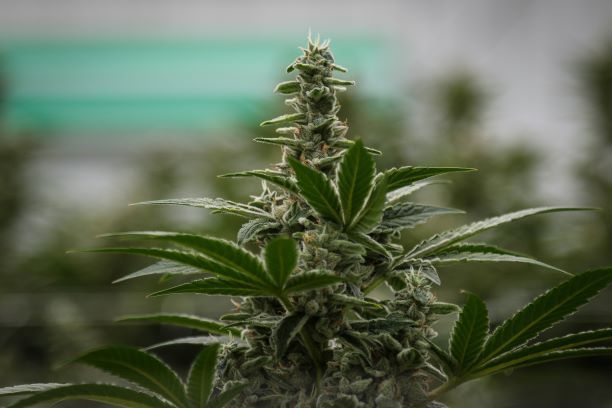Canadian cannabis grower Mark Spear had a plan: Form an outdoor cannabis collective with some like-minded farmers, raise capital through equity crowdfunding and start growing high-quality outdoor flower in the Ottawa Valley region.
Now, Spear’s company, Wildfire Collective, is closing its doors before harvesting its first crop.
Spear told Marijuana Business Daily he still believes in the collective outdoor farming model for Canadian cannabis, but his business plan was stymied by:
- Difficult negotiations with a landlord.
- Clashes with an unwelcoming municipal government.
- The challenge of raising capital in light of prevailing market conditions.
“The big producers have really made it difficult for the smaller players, just with their lack of profitability and all the inventory that they have,” he continued.
“It’s just really hard to explain to an investor how the cannabis that you’re going to be growing is going to be any different than, and how your story is going to be any different from, these massive producers that have been at it for several years and are still not successful by many metrics.”
What happened to Wildfire
The equity crowdfunding campaign launched by Spear and his partners in August 2019 raised only a fraction of the funding it sought.
A late-2019 letter of intent with an investor was supposed to raise 2.5 million Canadian dollars ($1.9 million), but that funding ended up falling through as well.
By the end of 2019, Spear said, Wildfire had “leaned out everything as much as possible, to really bootstrap it, to do the bare minimum that we needed to do to get to a license, and then we were going to raise more funds for operating capital once licensed.”
With insufficient funds to purchase a property, Wildfire found itself in negotiations with a local property developer who agreed to purchase a site in the Ottawa Valley and lease it back to the company.
“And as we were just nailing out the details of the lease, (the developer) added in a few clauses that, in the words of our lawyer, were ‘not commercially reasonable’ and would really have hamstrung the company,” Spear said.
Negotiations eventually broke down, and the developer filed a lawsuit. Spear said he is in the process of defending against that suit.
Despite that setback, Wildfire had its eye on another outdoor cultivation site in Beckwith, Ontario.
Spear said the municipal government approved the site plan but subsequently instituted an interim-control bylaw that delayed further development while the local government studied other municipalities’ bylaws on cannabis production.
Some residents were vocally opposed to a cannabis farm in their area, and Spear said the issue “turned very political very quickly.”
Even after that control bylaw expired last fall, Spear said, the municipality’s requirements were still too onerous.
Wildfire filed a Normal Farm Practices Protection Board complaint with the Ontario Ministry of Agriculture, but resolving that process would take a long time.
“All sorts of ridiculous requirements kept coming up along the way, and it got to the point where it (was) just quite clear that the municipality had no intention of approving our plans but didn’t actually have a legitimate reason to disallow it completely,” he said.
“So they were just making it very difficult for us, which was taking a lot of time and costing a lot of money.”
At that point, Spear said, Wildfire realized it was unlikely to grow cannabis at either production site in 2020.
With no profit in sight, the company would have needed more capital to move forward.
“And the cannabis industry (was) in a real tough point this past winter and spring, just in general,” he said.
” … Coupled with the pandemic, it’s just a lot of uncertainty in the investing world, and that really made it very challenging to raise any capital, especially with the fact that we had to disclose there was an ongoing legal dispute with a landlord.”
Business lessons learned
With Wildfire Collective in his rear-view mirror, Spear said he has valuable lessons to share with other prospective outdoor cannabis growers in Canada.
“First and foremost, go where you’re wanted,” he said.
“If a municipality really doesn’t want you to be there, or if you have some neighbors that are absolutely dead-set against it, they can make your life very difficult and it can take a lot of time and money to overcome these problems, even if you’re completely legal in every way.”
Spear also points out that early participation in a sector can amplify challenges, “and you don’t necessarily want to be at the bleeding edge of all of this.”
“I mean, you’re really blazing a trail for a lot of other farmers out there, so you have to be prepared that if you’re going to get into it at this early stage of the industry, that you’re probably going to encounter a lot of these problems for the first time, and you’re the one that’s going to have to set the precedent for farms to come after you.”
For outdoor growers, Spear’s experience is a stark reminder that control of cultivation land is foundational – ideally, a cannabis farmer owns their own land, he said.
Spear acknowledges that not every small business can afford to buy land, especially before licensing.
“If you don’t own the property yourself, ideally you would have, perhaps, a partner or a co-founder that owned the property that had an equal vested interest in seeing it succeed and get licensed quickly,” he said.
If a would-be cannabis grower has no other choice but to lease land, Spear recommends a lease with an option to eventually buy the property, ensuring that the landlord’s interests are aligned with the company’s interests.
Spear said he hasn’t given up on his outdoor aspirations.
“I’m certainly not done yet,” he said.
“I just need to take some time to gather lessons learned, and take a long, hard look at where the industry is at and where the opportunities lie, and figure out the best way to proceed.”
Solomon Israel can be reached at solomon.israel@mjbizdaily.com





